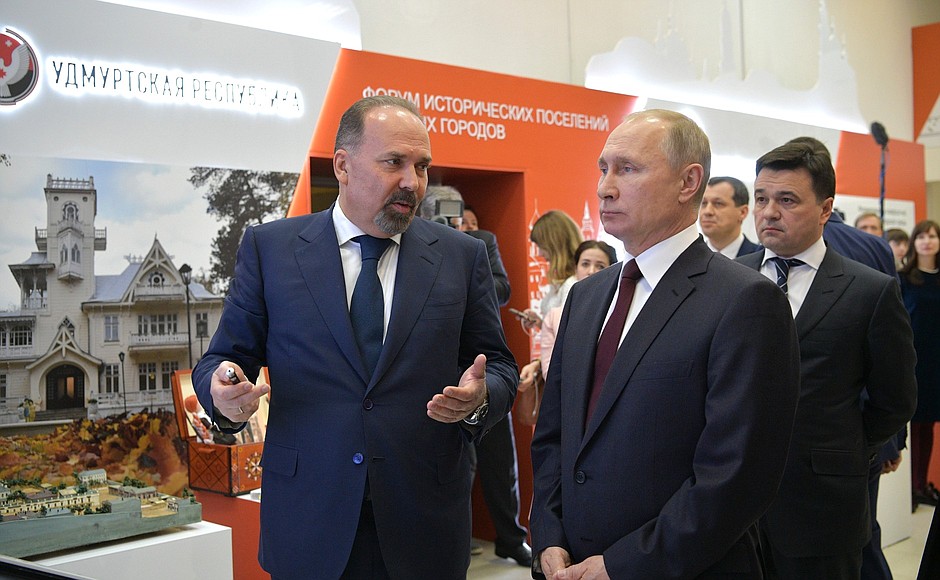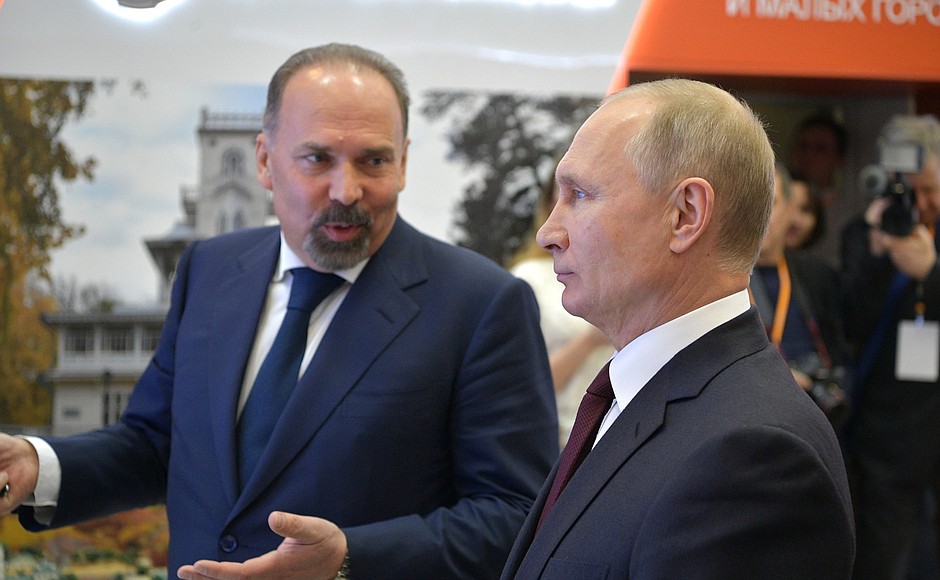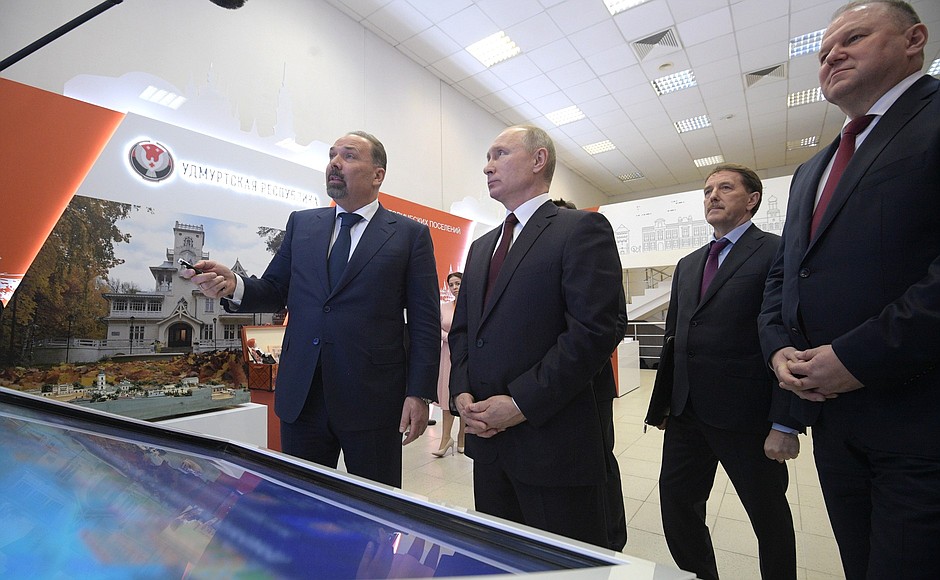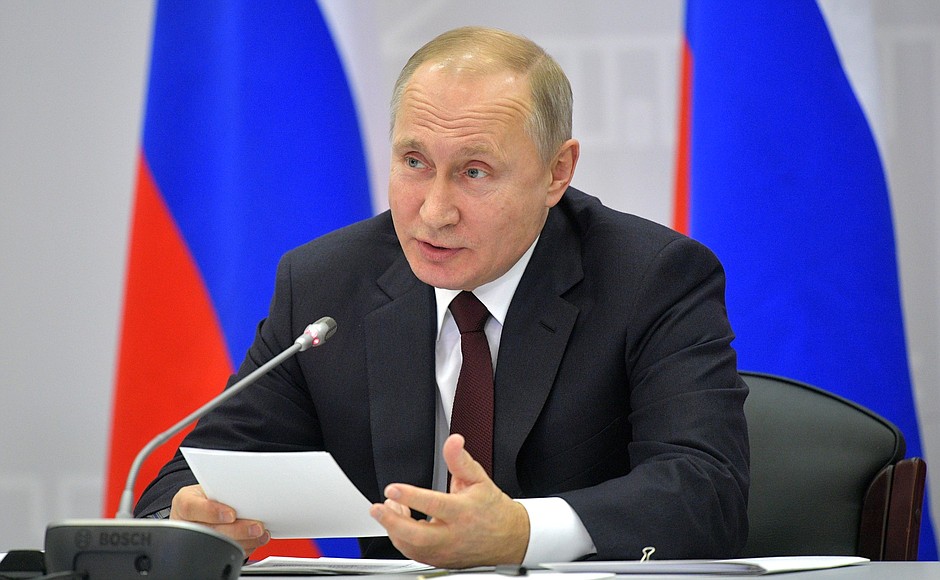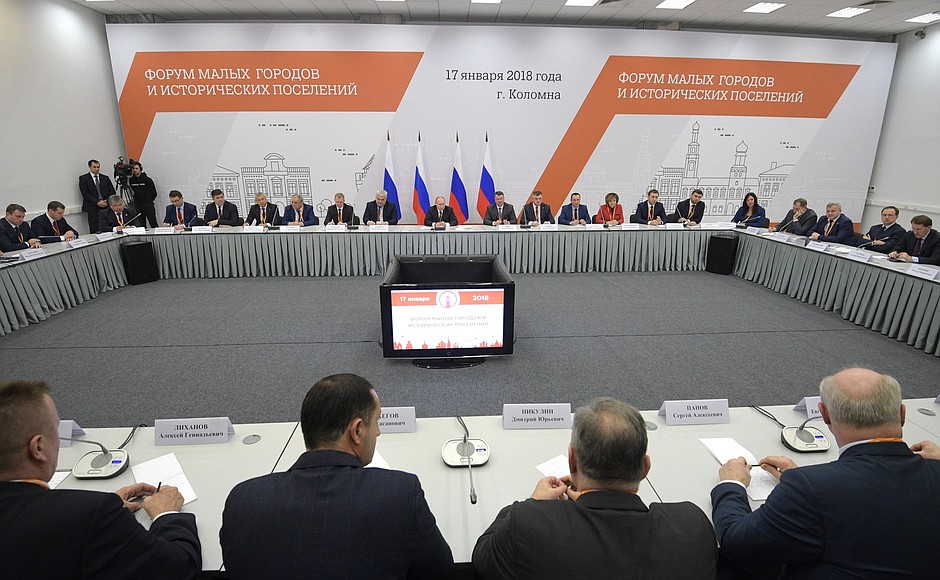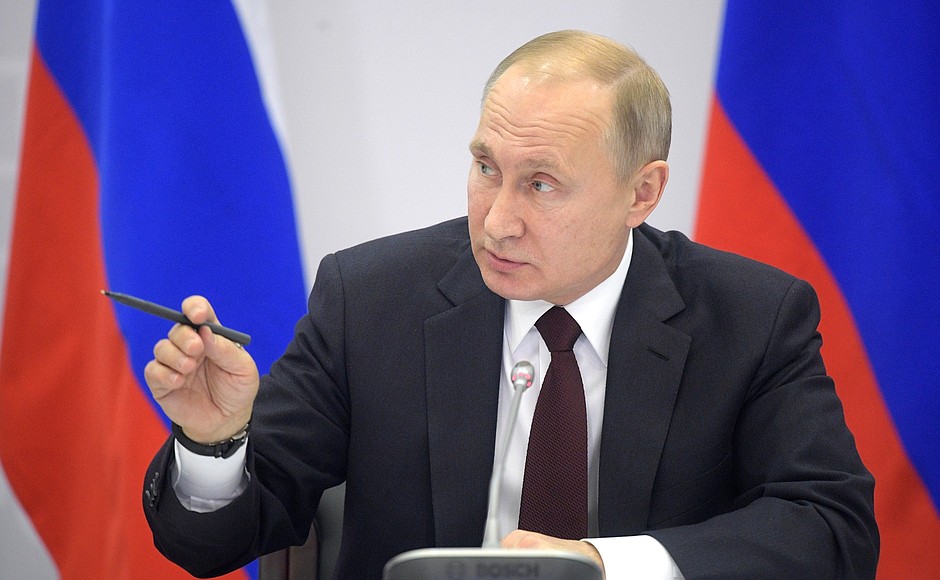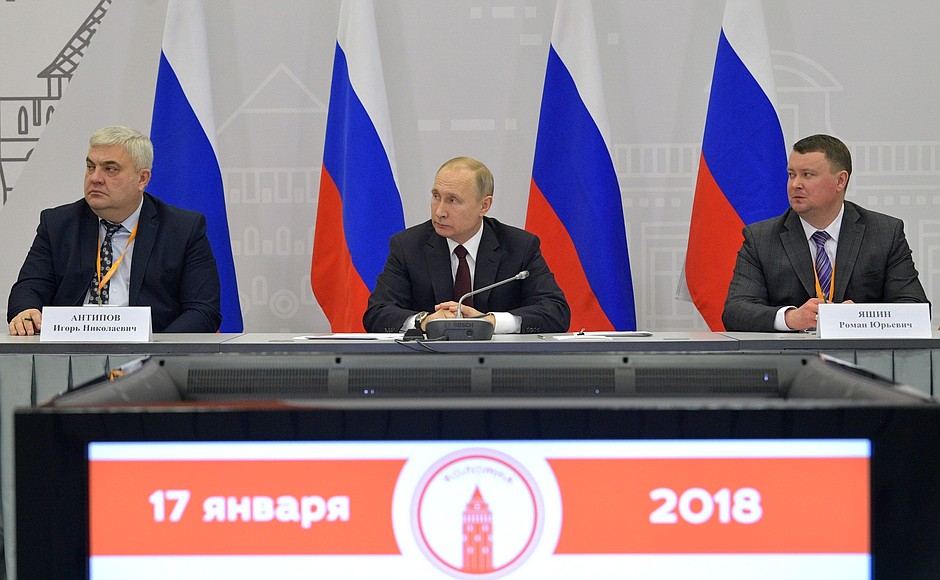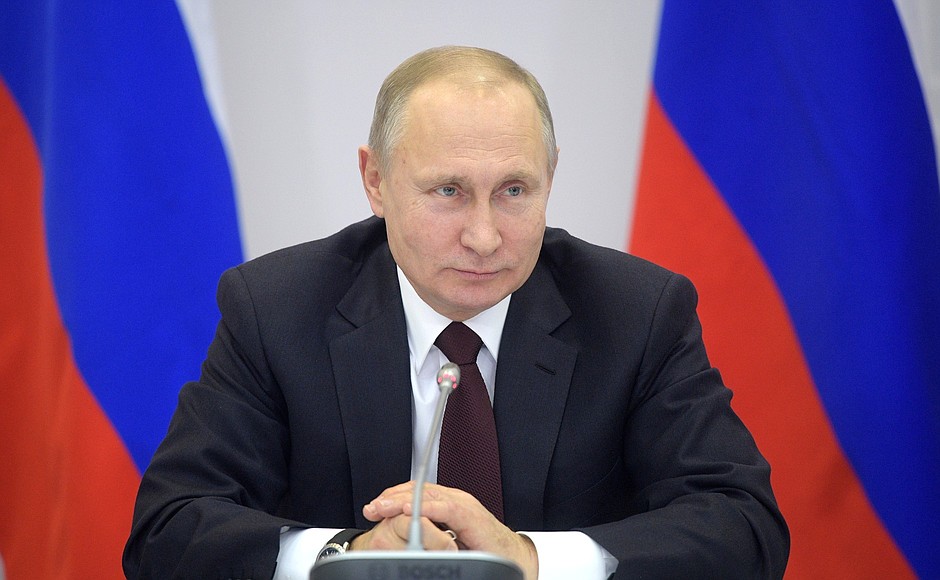Before the meeting the President visited an exhibition of projects for a comfortable urban environment. Vladimir Putin looked over the stands of the Ministry of Construction, Housing and Utilities, the town of Sarapul (Udmurtia) and the Moscow Region. He was told how comfortable urban environments are being created in various region of Russia and was shown a number of completed projects.
* * *
Opening remarks at the meeting with participants of the Forum of Small Towns and Historical Settlements
President of Russia Vladimir Putin: Good afternoon, colleagues,
I would like to thank our colleagues from Moscow for organising this meeting. As I can see, the meeting has generated some interest.
I am glad to welcome all of you. We do not hold meetings with municipal leaders as often as we would like but they are at least regular.
See also
As far as small towns and historical settlements are concerned, they are home to hundreds of thousands of people. This is a very important component of our life because our history and culture are largely concentrated in these places.
Although they are united by the common title of “small towns and historical settlements”, each has its own history, geography and, to some extent, culture. When I say “its own,” I am referring to local features. Of course, it is always necessary to find a competitive advantage, as they say, and this is largely what those who have gathered here today do.
This sounds nice, but standing behind these fine words is the enormous amount of everyday work that must be done to address housing and utility problems, provide urban amenities and develop the social sphere. This is clear.
One of the main areas is creating a comfortable living environment. This is not one of the main areas but the main area. You know that last year we launched a land development project. As we agreed we will continue implementing it, and 25 billion rubles will be allocated for it from the federal budget every year from 2018 to 2020.
These funds were distributed taking into account the population of towns, and bigger towns received more money. I do not know the extent to which the relevant ratio was observed. Judging by the information I have it was not always observed duly and fairly. But I think we will talk more about this today.
I would like to ask Mr Men [Minister of Construction, Housing and Utilities] to speak about this in more detail, to see how the practice of distributing these resources works. We will discuss this in more detail later. I would like to hear from you as well.
Obviously, it will be necessary to continue engaging citizens in the work of making improvements to our towns. We have just visited an exhibition on what is being done in small towns and historical settlements and how they are going about it. There are very interesting projects. Naturally, this is largely the result of your work, the work of your colleagues and the work of ordinary citizens, their creative initiative.
It is always very important to engage people in the process, to make them feel like collaborators. When there is synergy directly between government and people, for whose sake we all work, the effect is the greatest because people feel they are part of this process and perceive the end result as their own result.
Incidentally, we have covered small towns under some other programmes as well. I have just been to the perinatal centre that was opened here and has been operating for several months now. We have expanded the programme County Doctor to small towns with populations up to 50,000 people. Importantly, support will be provided not only to doctors but also to paramedics that come to these places to work. This programme will be fully funded from the federal budget. On the whole, we will continue upgrading medical institutions.
I have just mentioned the perinatal centre that we visited today. I know that one woman, an organiser of this meeting, was taken to this centre last night and gave birth to a girl. So, we congratulate the young mother and her baby and wish them all the best.
Modern medical centres certainly should have educational institutions attached to them. You have many concerns but also obvious advantages: the environment is better in small towns and historical settlements than in big cities; they do not have all the traffic, and they always have something appealing to offer people today. That is how it should always be presented. It is also necessary to create other favourable factors to make these places attractive.
Again, every small town or historical settlement should thoroughly analyse all of its opportunities and competitive advantages, as I have already said, and determine the main areas to develop, including those for small business and tourism. The Governor told us about the work being done with tourists. Of course, Moscow, a mega city, is nearby but if proper conditions had not been created, if local authorities had neglected the development of what the town and the entire country has to offer, there would be no tourists here.
It is very important to focus on attention-grabbers. If you do, small towns can become really big centres for tourism and the development of the arts, the economy, culture and science. There are plenty of examples in the world. Recently their number has been growing here as well: new resorts, new business centres and tourist destinations.
It is very important to use modern advantages, those on which we are working at federal level. I am referring, for one, to the digital economy. Just before – this is the third time I am mentioning it – we were at the perinatal centre (I think this is being developed in some of your towns) and it has direct video linkups practically with all relevant medical institutions in the entire region. Specialists can consult each other in real time every day, seek advice from large centres, detect abnormalities or defects, promptly make a decision and send patients where they will receive the best medical treatment. It is necessary to develop all this, of course.
Clearly, these tasks cannot be resolved without support of the regions and the federal centre but we are gathered here to discuss this, listen to each other and identify the main areas of work.
Thank you very much for your attention.
<…>
